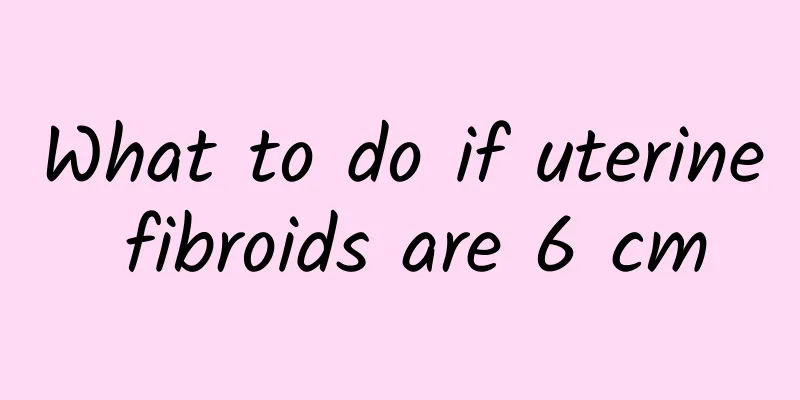What happens if uterine fibroids compress the bladder during pregnancy?

|
A few months into my pregnancy, I went to the hospital for a gynecological examination. The examination revealed that I had uterine fibroids, which were large and pressed against the surrounding organs, pressing on the bladder. What would happen if uterine fibroids pressed on the bladder during pregnancy? Although the chance of encountering uterine fibroids during pregnancy is quite high, serious complications are rare. Uterine fibroids will change as the pregnancy progresses. Some fibroids will change position, some will increase in size, and some fibroids will cause "reddening and degeneration" due to tissue congestion and embolism after pregnancy, leading to abdominal pain and uterine contractions. Uterine fibroids do not increase the chance of premature birth. When uterine fibroids grow to a certain size, they can compress surrounding organs. For example, compressing the bladder can cause frequent urination and urgency. Huge cervical fibroids compressing the bladder can cause difficulty urinating or even urinary retention or overflow incontinence. In severe cases, it can lead to bladder complications and urinary system diseases. Therefore, if uterine fibroids or bladder compression are found during examination, you should seek medical treatment as soon as possible. Since uterine fibroids are found during pregnancy, and the fibroids are large and compressing the bladder, the patient should seek treatment immediately. If it occurs in the late pregnancy, it can be treated with medication until surgery after delivery. If it occurs in the early pregnancy, if it is not treated in time, it will harm the urinary system of the pregnant woman, and the doctor should be consulted for appropriate treatment. Uterine fibroids compressing the bladder can cause frequent urination, urgency, and difficulty urinating. In severe cases, it can cause urinary system diseases. Patients should pay more attention and seek timely treatment. Because the fibroids are large in size, patients may need to terminate pregnancy and undergo fibroid removal surgery. Pregnant women may wish to try the following medicines, which have good effects: Pian Zai Huang milk-enhancing ointment: nourishes blood and activates blood circulation, dredges meridians and promotes lactation. Used for postpartum milk deficiency. Xiangyu Kai Fuli Compound Red Blood-Replenishing Oral Liquid: replenishes blood, replenishes Qi, and strengthens the spleen. Used as an adjuvant treatment for iron deficiency anemia. Tianfang Ruquan Granules: regulate menstruation, promote blood circulation, and promote lactation. Used for postpartum milk deficiency and poor milk secretion. |
<<: What are the folk remedies for pelvic effusion?
>>: Does a left ovarian cyst hurt? Where does it hurt?
Recommend
Can premenstrual periods cause ovarian cysts?
Can premenstrual periods cause ovarian cysts? 1. ...
Explore what is the treatment for cervicitis
After suffering from cervicitis, women all want t...
Women should pay attention to the prevention of vaginitis in daily life
Vaginitis is a common disease and can cause great...
How to treat pelvic inflammatory disease to completely cure it
Pelvic inflammatory disease is an infectious dise...
What are the causes of vulvar leukoplakia
What are the causes of vulvar leukoplakia? Vulvar...
The secret to not gaining weight again! Learn to eat easily with "My Plate"
The most feared thing about losing weight is gain...
What to eat after abortion to nourish the uterus
There is no saying about "what is the best w...
How to prevent recurrence of cervical erosion
How to prevent recurrence of cervical erosion? Ce...
What are the abnormal symptoms of menstruation before menopause?
The symptoms of abnormal menstruation before meno...
New Taipei City: 4 meatballs sampled and found to contain chloramphenicol
The New Taipei City Government's Health Burea...
Dietary considerations for patients with oligomenorrhea
Dietary considerations for patients with oligomen...
Specific drugs for treating amenorrhea
There is no specific cure for amenorrhea. Amenorr...
Which acupoints should be pressed to relieve pain quickly for dysmenorrhea
Which acupoint can be pressed to quickly relieve ...
Ectopic pregnancy may be caused by chronic pelvic inflammatory disease
Ectopic pregnancy may be caused by chronic pelvic...
What are the common symptoms of vulvar leukoplakia?
The symptoms of vulvar leukoplakia are what many ...









